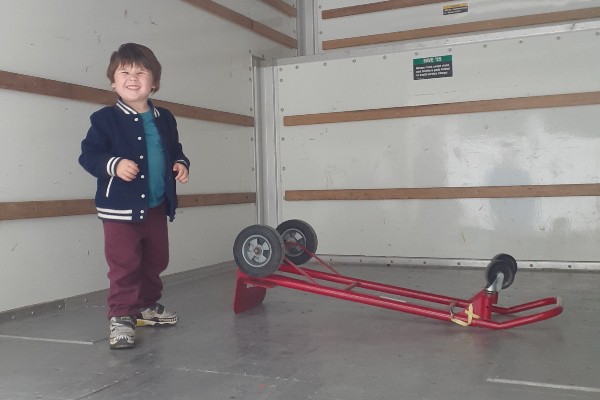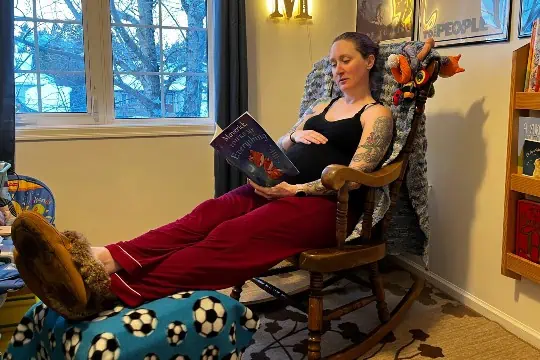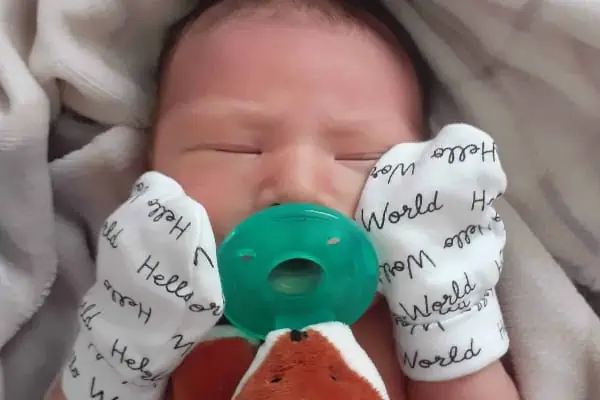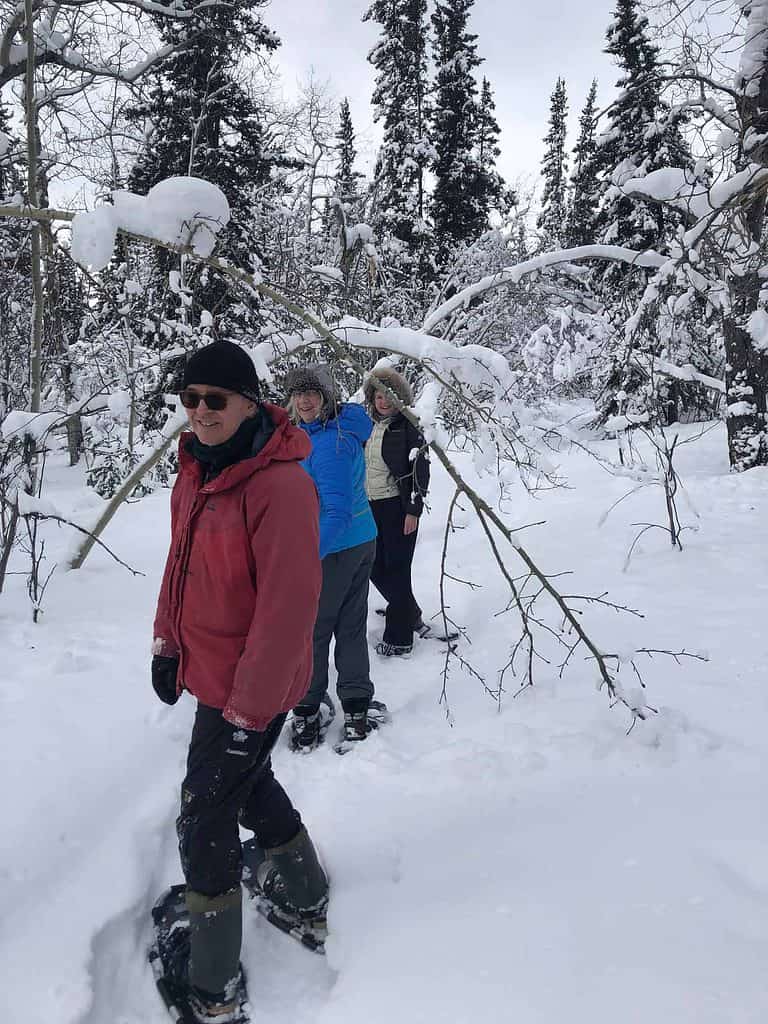I released the cold brass doorknob and walked up a half-step into an invisible wall of ammonia, iodine, freezer-burned meat and brown-sauce stench so thick and acrid that my nose burned.
The floor was shiny – impeccable – the kind that looks like tiny chips of coloured pebbles with flecks of dichroic gold.
The clacking of our steps reverberated throughout the hallway, and heads peeked out from doorways hidden in the smooth, painted concrete walls.
Nobody said hello.
The heads disappeared, followed by the slow squeal and creak of sticky hinges. No thump at the end (the doors were hung loose and I became skilled at closing our door without a thump, although the creaking was unavoidable).
I heard the murmuring of a strange man at the entrance and then the sound of my father’s voice as he returned to the door. I couldn’t make out what they were saying – I had slinked nearly to the other end of the long hallway.
Directly ahead of me was a set of glass doors and through them I could see bare tables, the collapsible kind, clumsily draped with flock-backed vinyl tablecloths.
On the other side, a wall-mounted television and, below it, two child-sized plush chairs, a wooden train track partially disassembled on the floor, a bin overflowing with yarn-haired dolls with dirty faces and a skipping rope.
A sweet and musty smell quickly confirmed my entrance.
I put my suitcase down and scanned the room. There was a boy in the far corner. He smiled warmly at me and I felt my shoulders let down.
His broad brown face and wavy black hair let me guess where he must be from (a question that wasn’t offensive then, when I was eight).
His name was David and he spoke only a few words in English; I spoke none in Spanish, his native tongue. Nevertheless, within a few minutes, there was no language barrier between us.
“Our language” was better than words. I spent that month – during which my family took refuge in that high-ceilinged, sterile building – laughing with David and his extended family.
Every family there, regardless of size, stayed together in one room. They were 12 people, so they had more cots, but still had the same size room as we did with four people.
Their room was always full; and I felt full, too, sitting cross-legged on a wobbly cot opposite an 80-year old woman, the two of us gesturing and laughing hysterically like two teenage girls sitting on a double bed, surrounded by movie posters.
Only these walls were bare and white, and the floors were cold, and the cots provided relief from shoe-wearing, even if they weren’t at all comfortable for sleeping.
They crowded their cots into one side of their room, frame against frame, some even lined up along the foot-ends of others. My family was evenly spread across the long wall of our room, with lots of space for our four small suitcases full of things.
They were three generations of men, women and children who were treating this like a vacation. We were four individuals distanced by misery and years of disconnection.
How could they be having such a good time?
I don’t remember much about my own family during that time – just the many nights spent being marched down to the men’s toilet where my father would demand that I cough up phlegm that wouldn’t come until I was laying in the cot beside his, and then just enough to keep him from sleeping.
And that sunken expression on my mother’s face as she sat staring at the collapsible tables where my brother and I were dancing like primates, in our room, to Gowan’s Strange Animal and Criminal Mind (my mother had kept her little radio).
Most of my memories, now, are of David.
We played checkers for hours every day and he laughed every time I won by tricking him into setting me up for triple and quadruple jumps, ending each game after only a few turns. He still played – losing didn’t seem to dissuade him from playing, ever!
We played chess occasionally, or made lakes out of plastic connecting toys, watched American cartoons in Spanish, then laughed out loud or sat silently together.
I thought he had even less than I did – even less clothing than me, and no toys – but David had something I did not: love without conditions, love without expectations; love, just as it was, an expression of him, and also what made him who he was and not a reflection of me … and he gave it without reservation.
I have never missed David. His memory is alive in me every day.
Today, with my own family, “David-love” flows freely, taken for granted like oxygen and rain and sunlight and the availability of sandals and cutlery, completely unmerited.
Exactly as it should be. And is.




